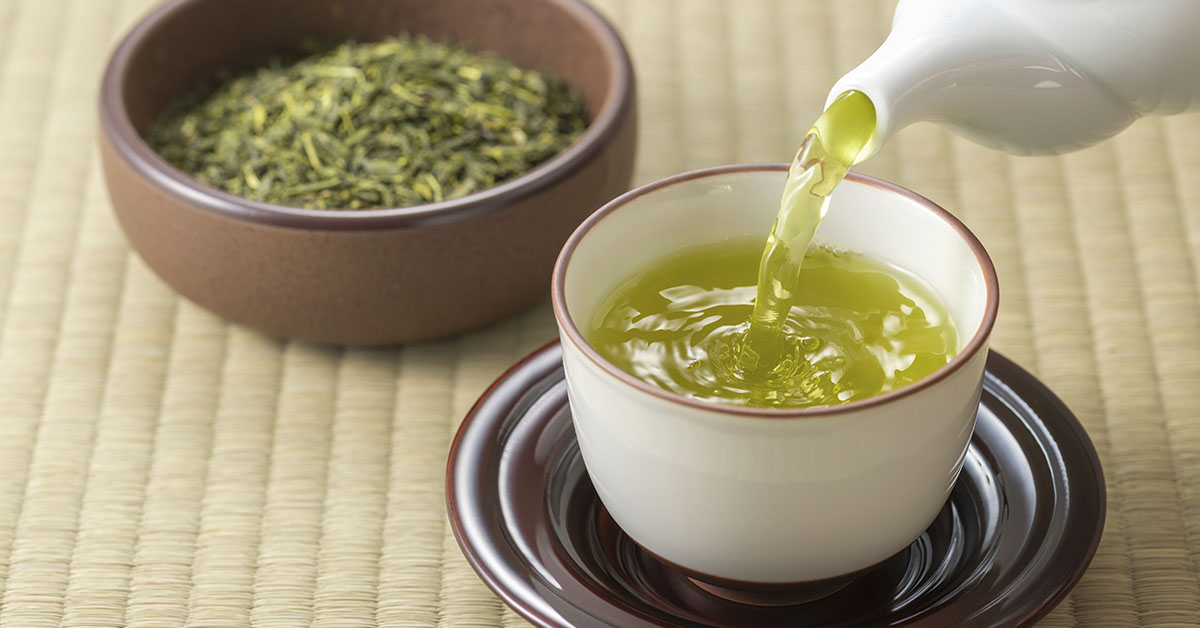A cancer diagnosis is a terrifying thing, whether it’s your own or someone you love. This is why many of us do our best to incorporate as many anti-cancer habits into our daily lives as possible. A healthy diet is one of the best tools in our tool kit, however, most of the information out there focuses on anti-cancer foods. Did you know, though, that there are also plenty of anti-cancer beverages that you can easily incorporate into your diet? These are just a few of them.
6 Beverages With Anti-Cancer Properties

When it comes to our overall health, it’s important to consider a well-rounded approach. While maintaining a healthy diet and engaging in regular exercise are key, it’s also worth noting that certain beverages can have anti-cancer properties that contribute to our overall well-being. Here are six of the easiest-to-find and most enjoyable anti-cancer beverages.
Read More: 8 of the Best Anti-Cancer Foods. It’s Time to Start Adding them to Your Diet
1. Green Tea

Green tea has long been recognized for its health benefits, and its potential to prevent and fight cancer has been widely studied. It contains a high concentration of antioxidants called catechins, which have been found to inhibit the growth of cancer cells and reduce the risk of various types of cancer, including breast, prostate, colorectal, and lung cancer. (1)
2. Tea
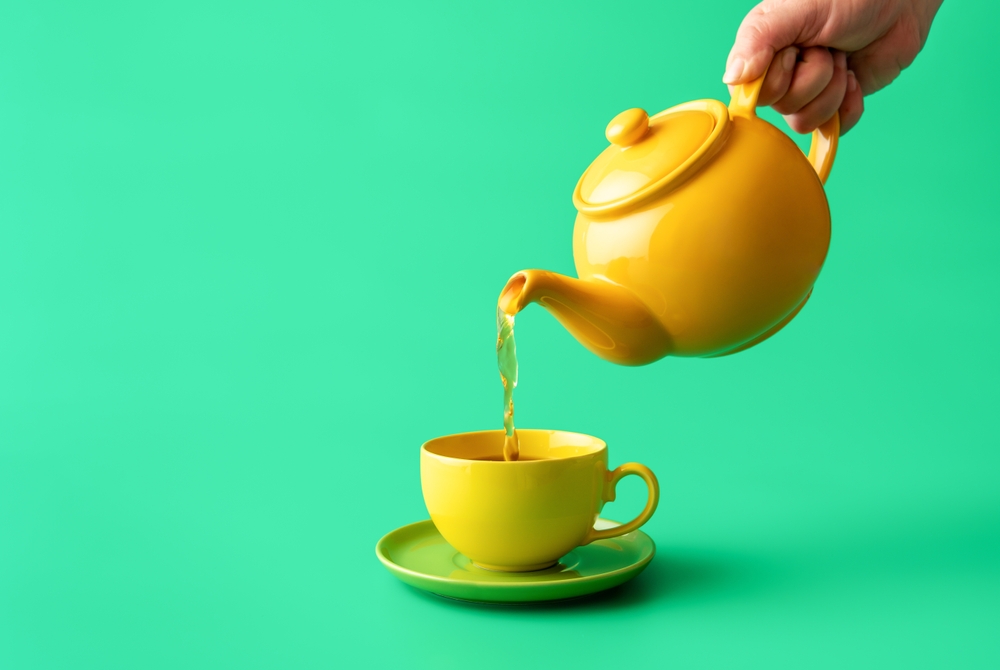
In addition to green tea, other types of tea, such as black tea, white tea, and oolong tea, also contain beneficial compounds that may have anti-cancer effects. These teas contain polyphenols, which are antioxidants with anti-inflammatory properties. Polyphenols have been associated with a reduced risk of certain types of cancer, including breast, ovarian, and colorectal cancer. (2, 3)
3. Chamomile Tea
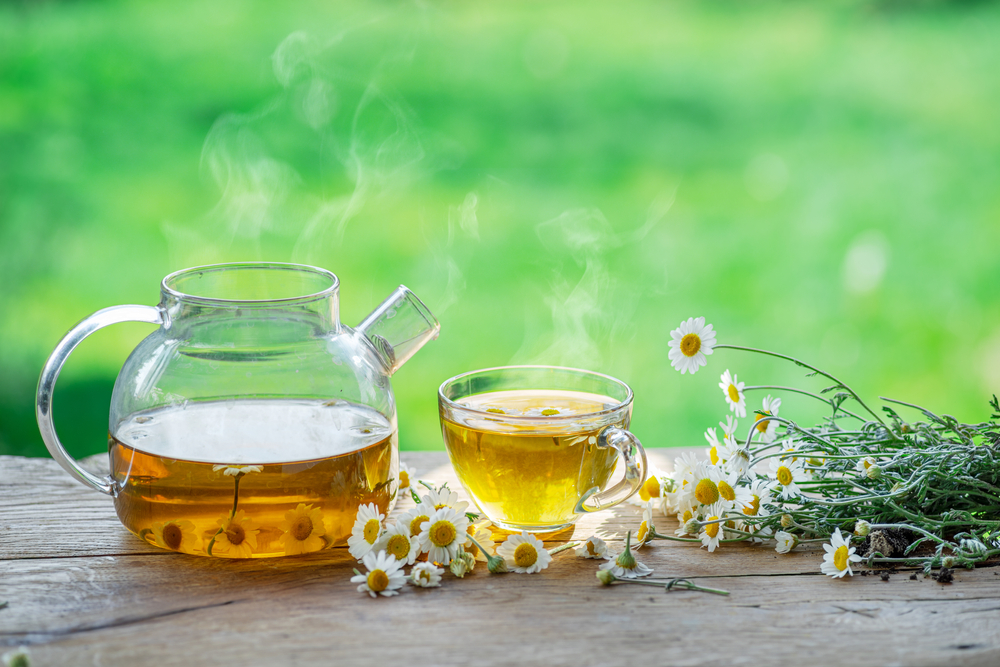
Chamomile tea is not just a soothing bedtime drink, but it may also have potential anti-cancer properties. In vitro research suggests that the flavonoids and antioxidants present in chamomile tea can inhibit the growth of cancer cells and induce apoptosis, or programmed cell death, in cancerous cells, however, more research is needed (4).
4. Coffee

If you’re a coffee enthusiast, you’ll be glad to know that your daily cup of joe may have more benefits than just providing an energy boost. Some studies have shown that coffee consumption is associated with a reduced risk of liver, colorectal, and endometrial cancer. Coffee contains various bioactive compounds, including polyphenols and caffeine, which have been found to possess anti-inflammatory and antioxidant properties. However, it’s important to note that excessive consumption of coffee should be avoided, as it may have other negative health effects. It is also important to note that adding excessive amounts of sugar, cream, artificial sweeteners, and other unhealthy ingredients will negate the positive attributes of your cup of jo. (5)
Read More: Starch in Green Bananas May Slash Risk of Some Cancers by Over 60%, Study Finds
5. Pomegranate Juice
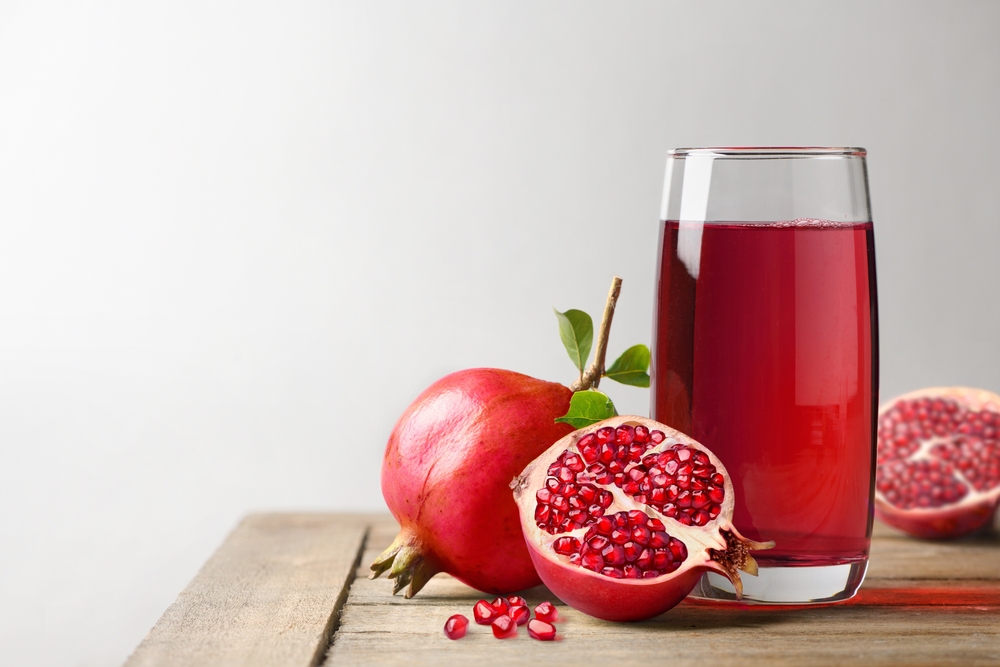
Pomegranate juice has gained popularity for its potential health benefits, including its cancer-fighting properties. It is rich in polyphenols, particularly ellagitannins, which can inhibit cancer cell proliferation and induce apoptosis. Studies have shown that pomegranate juice may be effective in preventing and treating breast, prostate, and colon cancer. Additionally, the juice has been found to have anti-inflammatory effects, which may contribute to its anti-cancer properties. (6, 8)
6. Cranberry Juice
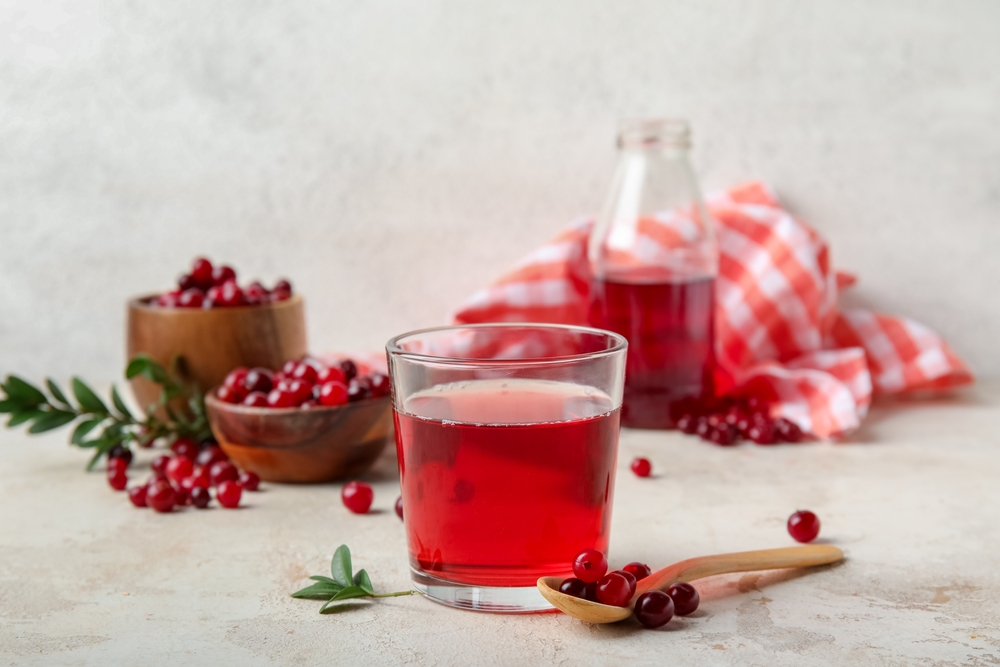
Cranberry juice is not only known for its ability to prevent urinary tract infections but has also shown promising anti-cancer properties. Its high content of antioxidants, such as proanthocyanidins, can help in preventing the growth and spread of cancer cells. Research suggests that cranberry juice may be particularly beneficial in reducing the risk of breast, prostate, and colorectal cancer. (7)
The Bottom Line

While these beverages may have potential anti-cancer properties, it’s important to remember that while they may be health-promoting, you must look at the bigger picture. It’s always wise to maintain a balanced diet, exercise regularly, and seek professional medical advice for personalized cancer prevention and treatment strategies. These beverages should be seen as part of an overall healthy lifestyle and should not replace medical treatment or advice. You can’t eat a poor diet, drink and/or smoke excessively, and lead a sedentary lifestyle and expect that tea or juice will prevent you from getting sick. It also goes without saying that these beverages cannot cure cancer – or prevent cancer with any kind of certainty. If you receive a cancer diagnosis, it is important to listen to the advice of your oncologist and follow the treatment plan lined out for you.
Read More: Daily Activity May Reduce Cancer Risk by 72%
Sources
- “Green tea (Chinese tea).” Cancer Research UK
- “Exploring the anti-cancer potential of dark tea.” Medical. Vijay Kumar Malesu. September 11, 2023.
- “Chamomile: A Review of Its Traditional Uses, Chemical Constituents, Pharmacological Activities and Quality Control Studies.” MDPI. Yun-Lei Dai, et al. December 23, 2022.
- “Coffee Consumption and Cancer Risk: An Assessment of the Health Implications Based on Recent Knowledge.” NCBI. Ernest K.J. Pauwels, et al. March 24, 2021.
- “Pomegranate for Prevention and Treatment of Cancer: An Update.” NCBI. Pooja Sharma, et al. January 2017.
- “Cranberries and Cancer: An Update of Preclinical Studies Evaluating the Cancer Inhibitory Potential of Cranberry and Cranberry Derived Constituents.” NCBI. Katherine M. Weh, et al. August 2016.
Disclaimer: This information is not intended to be a substitute for professional medical advice, diagnosis or treatment and is for information only. Always seek the advice of your physician or another qualified health provider with any questions about your medical condition and/or current medication. Do not disregard professional medical advice or delay seeking advice or treatment because of something you have read here.
